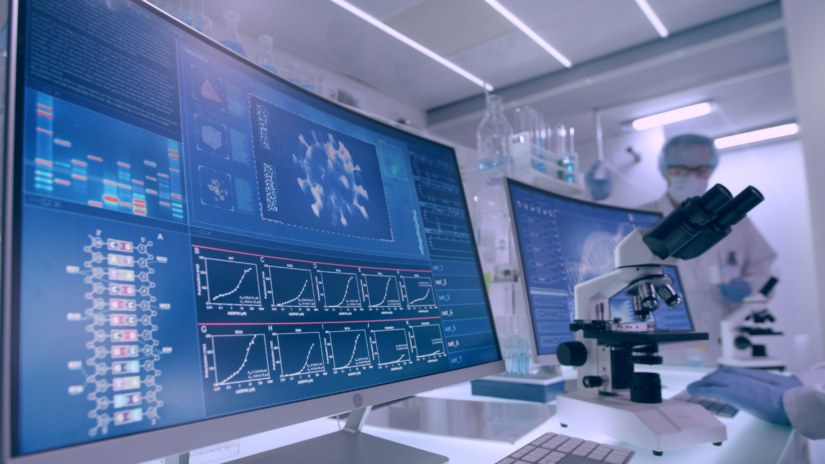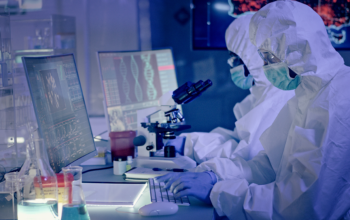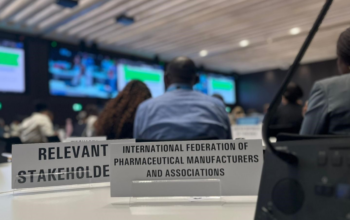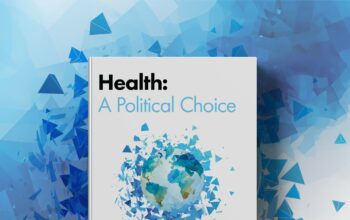Five Priorities to Global Pandemic Preparedness

This oped was originally published on Health Policy Watch on 14 February 2023
On February 27 World Health Organization member states will meet to commence formal negotiations on a global pandemic preparedness agreement – unofficially turning the page from responding to COVID-19 to readying ourselves for future health emergencies.
While the Intergovernmental Negotiating Body (INB) of member states have already held a series of meetings, as well as stakeholder briefings, the negotiations at the end of the month hold special significance as they follow the publication of the “zero draft” of the envisioned international legal instrument.
And with the aim of concluding a draft instrument by May 2024, the clock is already counting down. This is a huge undertaking, and millions of lives depend on learning the right lessons from our collective response against the COVID-19 pandemic.
The pharmaceutical industry, which played an indispensable role in defeating COVID-19, recommends focusing on five priorities.
Sustaining a thriving innovation ecosystem
The first must be to maintain and reinforce the policies and systems that worked well these past three years – the innovation ecosystem undergirding our industry, and the immediate unhindered access to pathogens and their genetic sequences.
It was no accident that we had tests and potential vaccines and treatments in development within days of the sequence of the novel coronavirus published online – a record-breaking pace that saved an estimated 20 million lives just in year one . Everything from the viral vector or mRNA technology behind the vaccines to the global supply chains that enabled unprecedented manufacturing scale-up wouldn’t have been possible without decades of large, risky investments in the international pharmaceutical sector.
Yet today, the very system that allowed collaboration and innovation to thrive and deliver the solutions for the COVID-19 pandemic, is under attack. The World Trade Association’s June 2022 decision to waive international patent protections on the COVID-19 vaccines, and the ongoing discussions on extending this waiver to COVID-19 therapeutics and diagnostics, risk to undermine the system, which was critical for the success in the fight against COVID-19. Attacks on IP at the WTO or in the zero draft of the accord fail to recognize the critical role that intellectual property frameworks play to incentivize research and facilitate voluntary partnerships, business-to-business agreements, and technology transfers. Proponents of these proposals oversimplify what the notion of “tech transfer” entails, and risk undermining, rather than facilitating our collective ability to rapidly develop and scale-up countermeasures.
Furthermore, some countries seek to twist the UN’s Nagoya Protocol – a roughly decade-old pact that gives countries more rights and incentives over their native flora and fauna with the intention of protecting biodiversity – to restrict the flow of information about pathogens. The deliberate twisting of the protocol giving value to pathogens instead of protecting global health security is a bizarre and unprecedented threat to global health.
Lest we forget, the system we had in place when COVID-19 arrived created multiple safe, effective vaccines against a novel, deadly contagion in a matter of months, produced billions of doses within a year, and has now delivered at least one dose to over 69% of the world’s 8 billion people. This is a record to build on, not to attack. Innovation and immediate access to pathogens should be at the center of all pandemic preparedness and response plan.
Shaping a new “social contract”
Second, the world’s wealthiest nations must adopt a new framework for more equitable global distribution of vaccines and therapies. National leaders, morally accountable to their own citizens, can now nonetheless appreciate the value of global preparedness. As wave after wave of Covid variants have taught wealthy nations, viruses do not respect economic advantage any more than they do geographic borders. Amidst a global contagion, none of us are safe until we all are.
The framework that best reconciles different region’ interests is one familiar to all democracies: the social contract under which citizens balance rights with responsibilities, independence with interdependence. Under a global pandemic preparedness “social contract”, pharmaceutical companies set aside stores of vaccines, treatments, and tests, based on real time production, for priority populations in lower-income countries. But for this to work, manufacturing countries need to allow that part of what is produced in their territories will be exported to low-income countries in real time. And of course, we need adequate funding upfront for organizations such as Gavi to sign contracts early on.
Fostering sustainable manufacturing globally
Third, Covid-19 showed how broad a global vaccine production program must be – and how much such a program depends on a stable legal and policy framework, which give the confidence to parties to join forces, and share technology and know-how.
The record is clear. By the end of 2022, pharmaceutical companies signed 381 vaccine manufacturing and production partnerships, and 150 more to produce COVID treatments – the vast majority of both involving technology transfer . To facilitate access and equity for the developing world, those partnerships included facilities based in India, Bangladesh, Egypt, and South Africa.
The right enabling environment to attract sustainable investments and predictable demand will be critical to maintain existing capacity and introduce new capacity in other regions.
Removing trade restrictions
Fourth, the COVID-19 experience showed that when it comes to the development, manufacturing, and distribution of goods around the world, there is no substitute for free trade. Whatever arguments that might exist for protectionist trade barriers in other sectors of the global economy, it is now obvious that those arguments do not apply to public health necessities in the middle of pandemics. Open trade saves lives.
Ensuring greater country readiness
And fifth, when it comes to global equity, the ability of less developed nations to absorb supplies is also paramount. These countries need help in strengthening their healthcare systems and making huge investments in health infrastructure to prevent, detect and respond to future threats, while maintaining access to routine and essential services during a crisis.
Later this month, WHO negotiators will be looking at all of the above – efficacy and equity, supply and demand, economic incentives and moral responsibilities – as members work to revise the current zero draft of a global pandemic Accord.
Taking the time, here in this middle hour between crises, to get the policies and incentives right will yield the public health community the coordination, collaboration, and innovation we will need to overcome the inevitable next pandemic.
Author






